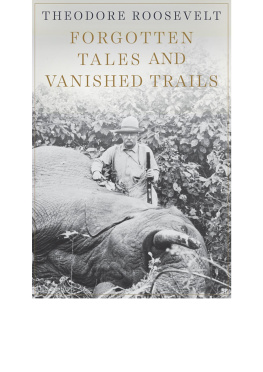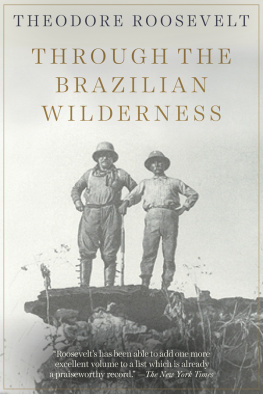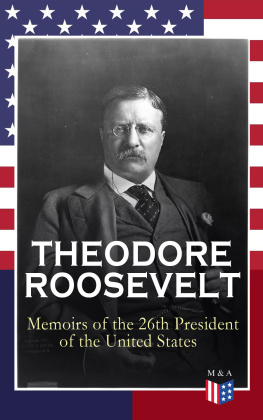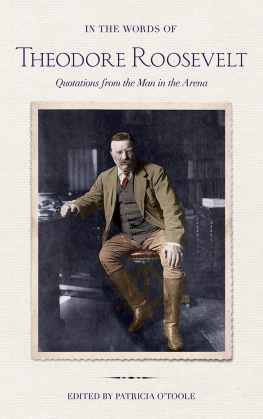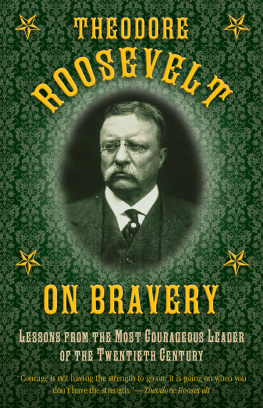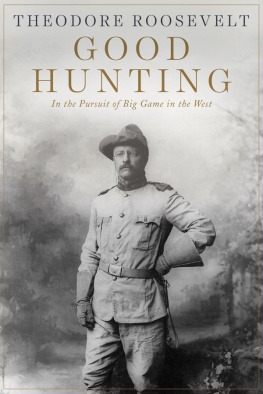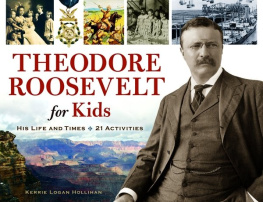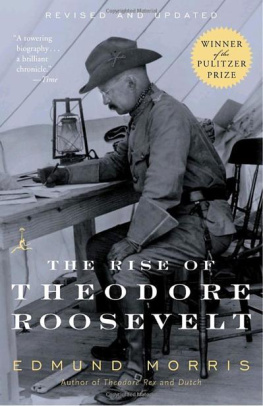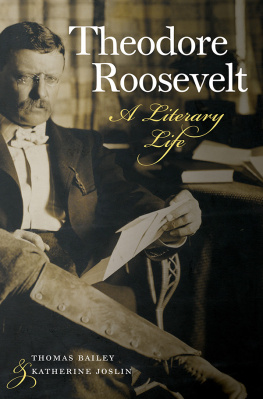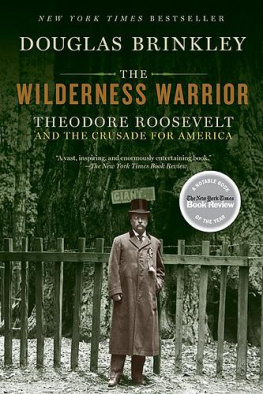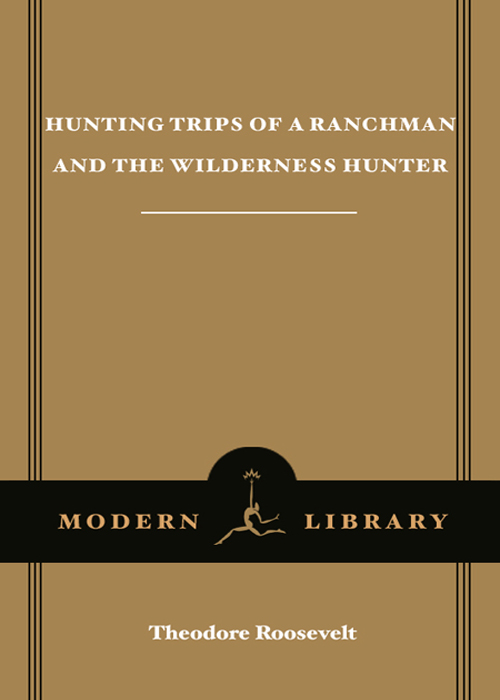
CONTENTS

ADDENDUM
I n speaking of the trust antelope place in their eyesight as a guard against danger, I do not mean to imply that their noses are not also very acute; it is as important with them as with all other game to prevent their getting the hunters wind. So with deer; while their eyes are not as sharp as those of big-horn and prong-horn, they are yet quite keen enough to make it necessary for the still-hunter to take every precaution to avoid being seen.
Although with us antelope display the most rooted objection to entering broken or wooded ground, yet a friend of mine, whose experience in the hunting-field is many times as great as my own, tells me that in certain parts of the country they seem by preference to go among the steepest and roughest places (of course, in so doing, being obliged to make vertical as well as horizontal leaps), and even penetrate into thick woods. Indeed, no other species seems to show such peculiar freakiness of character, both individually and locally.
The Wilderness Hunter
Dedication
TO
E.K.R.
They saw the silences
Move by and beckon; saw the forms,
The very beards, of burly stroms,
And heard them talk like sounding seas ...
They saw the snowy mountains rolled
And heaved along the nameless lands
Like mighty billows; saw the gold
Of awful sunsets; saw the blush
Of sudden dawn, and felt the hush
Of heaven when the day sat down
And hid his face in dusky hands.
Joaquin Miller
In vain the speeding or shyness;
In vain the elk takes to the inner passes of the woods...
... where geese nip their food with short jerks,
Where sundown shadows lengthen over the limitless
prairie,
Where herds of buffalo make a crawling spread of the
square miles, far and near,
Where winter wolves bark amid wastes of snow and ice
clad trees ...
The moose, large as an ox, cornered by hunters plunging
with his forefeet, the hoofs as sharp as knives ...
The blazing fire at night, the sweet taste of supper, the
talk, the bed of hemlock boughs, and the bear-skin.
Walt Whitman
PREFACE
F or a number of years much of my life was spent either in the wilderness or on the borders of the settled countryif, indeed, settled is a term that can rightly be applied to the vast, scantily peopled regions where cattle-ranching is the only regular industry. During this time I hunted much, among the mountains and on the plains, both as a pastime and to procure hides, meat, and robes for use on the ranch; and it was my good luck to kill all the various kinds of large game that can properly be considered to belong to temperate North America.
In hunting, the finding and killing of the game is after all but a part of the whole. The free, self-reliant, adventurous life, with its rugged and stalwart democracy; the wild surroundings, the grand beauty of the scenery, the chance to study the ways and habits of the woodland creaturesall these unite to give to the career of the wilderness hunter its peculiar charm. The chase is among the best of all national pastimes; it cultivates that vigorous manliness for the lack of which in a nation, as in an individual, the possession of no other qualities can possibly atone.
No one, but he who has partaken thereof, can understand the keen delight of hunting in lonely lands. For him is the joy of the horse well ridden and the rifle well held; for him the long days of toil and hardship, resolutely endured, and crowned at the end with triumph. In after years there shall come forever to his mind the memory of endless prairies shimmering in the bright sun; of vast snow-clad wastes lying desolate under gray skies; of the melancholy marshes; of the rush of mighty rivers; of the breath of the evergreen forest in summer; of the crooning of ice-armored pines at the touch of the winds of winter; of cataracts roaring between hoary mountain masses; of all the innumerable sights and sounds of the wilderness; of its immensity and mystery; and of the silences that brood in its still depths.
T HEODORE R OOSEVELT
SAGAMORE HILL,
JUNE, 1893
HUNTING TRIPS OF A RANCHMAN
Dedication
TO THAT
KEENEST OF SPORTSMEN
AND
TRUEST OF FRIENDS
MY BROTHER
ELLIOTT ROOSEVELT
INTRODUCTORY NOTE
M ost, although by no means all, of my hunting has been done on the Little Missouri River, in the neighborhood of my two ranches, the Elkhorn and Chimney Butte; the nearest town being the little hamlet of Medoraso named, I may mention for the benefit of the future local historian, in honor of the wife of the Marquis de Mores, one of the first stockmen to come to the place.
THEODORE ROOSEVELT
CHIMNEY BUTTE RANCH,
MEDORA, DAKOTA,
MAY, 1885
INTRODUCTION BY STEPHEN E. AMBROSE
T heodore Roosevelt stands in the first rank of twentieth-century American presidents by every criterion of greatness: character, intelligence, decisiveness, popularity, accomplishments, and more. His breadth and depth of knowledge was remarkable, even among presidents: he could talk about the details of their professions with a myriad of groups, including politicians, cowboys, intellectuals, historians, generals, admirals, and naturalists, among others. Imagine a conversation between Thomas Jefferson, the president who led the Republic into the nineteenth century, and Teddy Roosevelt, who led us into the twentieth. Then try to imagine a conversation between Jefferson and Richard Nixon, and you get the point.
Roosevelt stands alone, unchallenged by any other twentieth-century president, as a writer and scholar. Not even Woodrow Wilson comes close. The number of books and articles he wrote, as well as the wide variety of their subjects, is staggering. He published forty-two books and countless articles: the Harvard University Theodore Roosevelt Collection: Dictionary Catalogue and Shelf List, prepared in 1970, required five volumes to list all his published works. The subjects ranged from smoke-filled rooms at a political convention to the smoke of the campfire, from hunting elk in Montana to biographies of Oliver Cromwell and Gouverneur Morris, from the prize-winning four-volume The Winning of the West to impassioned pleas for conservation.
This is a productivity that only Winston Churchill could imagine; no other writer of the century has produced so much material on so many subjects, written with such originality and based on such extensive research. Yet writing was never his chief occupation. He was a lifelong politician. Still, he found time to do extensive original research in documentary collections scattered across the country for The Winning of the West, and was at the cutting edge of research techniques among professional historians. Indeed, he was in many ways far ahead of the professionals, obviously so in his literary skills but also as a researcher. That is why he is still read today, while the books of many professional historians are notnot even by graduate students.
His hunting books have the same winning qualities as his histories: sharp observation, revealing details, charming and illuminating anecdotes, an overview, and honesty. Henry Adams said he was pure act, and in the hunting booksas in his political lifehe certainly seems so. But rereading Hunting Trips of a Ranchman and The Wilderness Hunter has helped me see another side of TR.
He was a great listener. Many of the hunting stories he tells he heard around the campfire. He seldom identifies a specific source, probably because he often couldnt see the face of the narrator. This gives the stories a timeless quality. Storytelling began with Stone Age hunters sitting around a campfire recounting their deeds.



